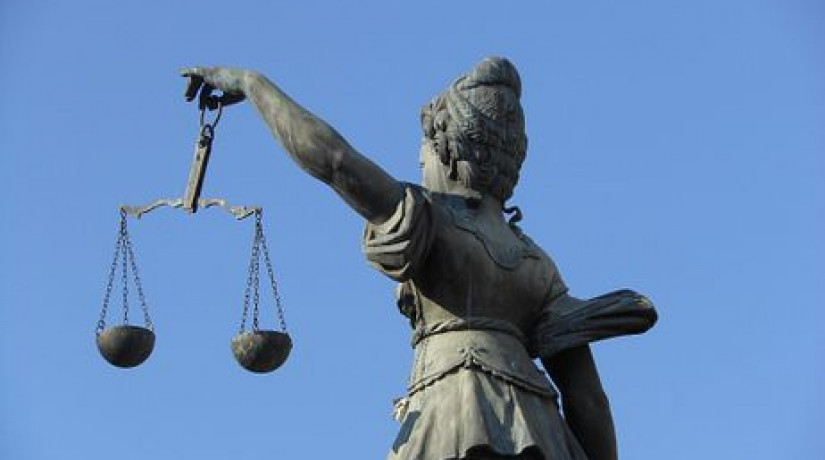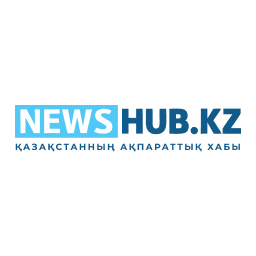Полиция пресекла факт незаконного оборота мефедрона в Алматы
Международный аэропорт Семей привлечен к административной ответственности
В столице представили редкие рукописи VIII–XIX веков
Спасатели МЧС предотвратили взрыв в жилом доме
Деятельность незаконного онлайн-казино расследует АФМ в Мангистауской области
Kazakhstan’s Rule of Law Struggles on the International Stage
 25 Марта 2021
25 Марта 2021
 1060
1060
 Право
Право
 Фото:The Diplomat
Фото:The Diplomat
Almaty. March 25. Information Center - Kazakhstan’s recalcitrant response to international arbitration belies its claims to be a friendly destination for investment, the Diplomat reports.
“Overwhelming evidence shows thatKazakhstanstruggles at every level to keep its word,” notes the executive summary of a recent report focused on the evolution (or lack thereof) of the rule of law inKazakhstan, published by 9BedfordRow International, a London-based firm.
The report is authored by Steven Kay and John Traversi, who in 2006 visited Kazakhstan as part of an initiative to train judges, prosecutors, and defense lawyers. The country was about to begin implementing the use of jury trials, which were introduced in early 2007. More than a decade later, Kay and Traversi wanted to review Kazakhstan’s rule of law progress in light of the time passed and the change in presidents that occurred after Nursultan Nazarbayev’s March 2019 resignation. While the first section of the report examines the government and judicial structures of Kazakhstan, the second looks to international arbitration cases involving Kazakhstan as an “external thermometer” to judge the rule of law.
What they found was that “clear-cut laws for achieving justice, fighting corruption, and promoting freedoms and human rights are continuously challenged by the realities of life in [Kazakhstan], plagued by corruption, suppression of free speech and arbitrary law enforcement.”
On the international stage, Kazakhstan’s Ministry of Justice, they found, “ignores court rulings overseas which have not fallen in the country’s favor, even when proceedings are final and non-appealable.”
This second part, in particular, comes as an interesting contrast to how Kazakhstan presents itself as a destination for investment. Nur-Sultan is clear in its aims to brand itself as a financial hub, waving pridefully its position (25th) in the World Bank’s Ease of Doing Business rankings. Within the ranking, there is a category for “enforcing contracts” in which Kazakhstan hits high marks. Under that category there is a subcategory covering the “quality of judicial processes.” Among the metrics under that subcategory are questions about court structure, case management, court automation, and finally “alternative dispute resolution.” In that final area, Kazakhstan somehow gets a perfect score.
“Are valid arbitration clauses or agreements usually enforced by the courts?” one question asks. “Yes,” is the answer provided.
The 9 Bedford Row International illustrates a completely different reality. And this divergent reality metaphor extends to the first part of the report as well. “Kazakhstan is a country of two realities, one for average citizens and one for the elite and the outside world,” one finding notes.
With regard to arbitration, “We found that there was a clear pattern of conduct aimed at defeating arbitral awards made against Kazakhstan and there is a strategy in which the state is prepared to take extreme measures of forum shopping in order to allege fraud and relitigate the [original] matter in other jurisdictions,” the report states.
ADVERTISEMENT
The “Tristan” case is illustrative. The Tristan Oil case is sometimes referred to as “Tristangate” or the Stati case, for Anatolie Stati, a Moldovan businessman who founded the Ascom Group, of which Tristan Oil was a subsidiary. In brief, Tristan Oil was harassed by Kazakh authorities and then forcibly nationalized in 2010. The campaign was seemingly triggered by a 2008 letter from the Moldovan president to Nazarvayev alleging that Stati was concealing profits and funding activities in South Sudan, breaking international sanctions and putting at risk the reputations of Kazakhstan and Moldova. Nazarbayev ordered the company to be looked into, setting off a cascade of arbitrary criminal charges against local employees, unscheduled inspections, and “unjustified” tax audits, per the 9 Bedford Row International report’s summary of events.
Stati and the other shareholders took the case to the Arbitration Institute of the Stockholm Chamber of Commerce (SCC) on grounds that Kazakhstan violated the Energy Charter Treaty, to which Kazakhstan is a party. In December 2013, the tribunal ruled that Kazakhstan had violated its obligations and ordered the state to pay Stati and the other claimants nearly $500 million, plus most of the arbitration costs and half their legal expenses — totaling $506 million at the time (more now, with interest).
Kazakhstan appealed; the appeal was dismissed in 2016. It also appealed to the Swedish Supreme Court, which refused to take up the case. Still, Kazakhstan didn’t pay up. So Stati petitioned to have the arbitral award confirmed in the U.S. District Court for the District of Columbia and in March 2018 it was. Kazakhstan appealed to the U.S. Court of Appeals for the District of Columbia only to, once again, have the decision upheld.
Kazakhstan, the report states, was “forum shopping” — for all intents and purposes looking for a court, any court, that would side with it. The latest phase has included Kazakhstan alleging fraud against company that held bonds in Tristan Oil, a matter the report characterizes as “irrelevant to the original arbitral dispute.” The award remains unpaid, and growing.
The 9 Bedford Row International report covers several other arbitration cases. In some, Kazakhstan’s appeals were more successful than in the Tristan case, but in many other cases they were not or otherwise exhibit similar state behavior, which the report calls a “disturbing pattern.”
ru Более 102 тыс. вакансий размещено на Электронной бирже труда с
ru Аграрии Жамбылской области готовятся к посевной
ru Полиция пресекла факт незаконного оборота мефедрона в Алматы
ru Международный аэропорт Семей привлечен к административной ответственности
ru В столице представили редкие рукописи VIII–XIX веков
ru Касым-Жомарт Токаев поздравил верующих с началом месяца Рамазан
ru 14,3 млрд кубометров составляет свободная емкость в водохранилищах Казахстана для
ru С начала года казахстанцам выплачено пенсий на сумму более 395
ru Канал сбыта наркотиков каннабисной группы пресечен в Жамбылской области
ru Спасатели МЧС предотвратили взрыв в жилом доме
ru Более 40% всех ПИИ — вклад Алматы
ru Деятельность незаконного онлайн-казино расследует АФМ в Мангистауской области
ru Импульс на рынке труда: в Алатау в Алматинской области предложены
ru Школьники задержаны за «телефонное» хулиганство в Алматы
ru Ликвидированы подпольные цеха по производству снюса в Туркестанской области
ru $400 млрд к 2029 году составят инвестиции в промышленный каркас
ru Президент направил телеграмму поздравления Генеральному секретарю ЦК Компартии Вьетнама
ru Глава государства направил поздравительную телеграмму Председателю КНР
ru Опознанное тело оказалось чужим: суд отменил запись о смерти
ru Запущен проект по обеспечению сёл высокоскоростным интернетом
ru В КазНУ открылся казахстанско-сингапурский центр квантовых технологий
ru Около 1 700 единиц спецтехники задействовано в снегоуборочных работах в
ru В 2026 году в Казахстане ведется строительство 90 новых школ
ru В Алматы завершена пробивка тоннелей до новой станции метро
ru В преддверии праздника Наурыз на железнодорожных перевозках будет открыто 35
ru Государственный контроль в Жетісу обеспечил снижение цен на СЗПТ
ru В 2025 году объём вложений в сферу туризма превысил 1,25
ru 1,5 млрд тенге выплачено в 2026 году ветеранам в виде
ru Министерство обороны предупреждает о незаконности услуг по «освобождению от армии»
ru Глава государства принял председателя правления АО НК «КазМунайГаз» Асхата Хасенова

 +77772555856
+77772555856
 Написать нам
Написать нам












